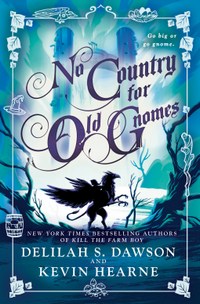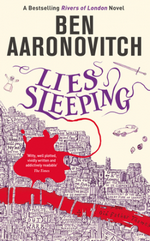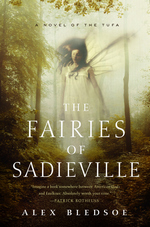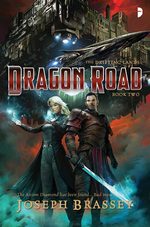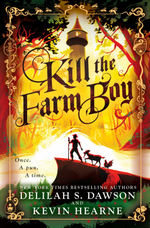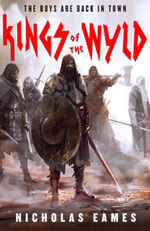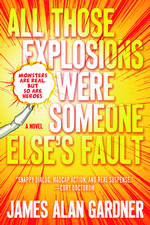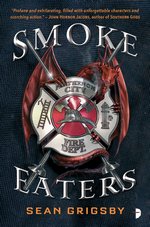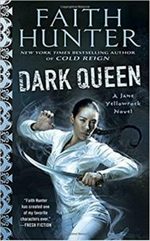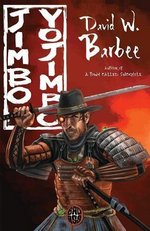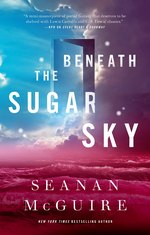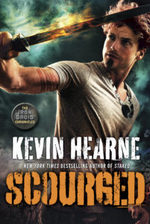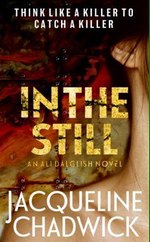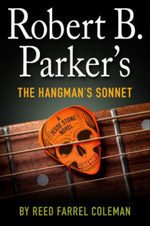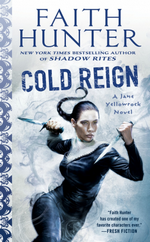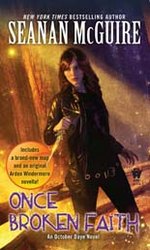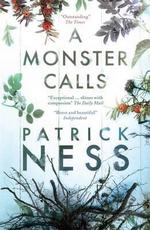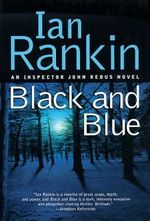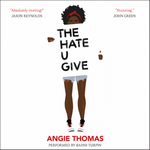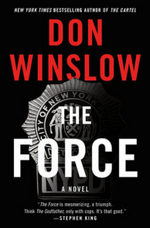It’s been a while since I’ve done something like this, but it’s pretty overdue (and only way I’m going to catch up). I’ve started (and re-started) posts on all three of these, but for some reason, I just can’t get something I’m satisfied with, and I don’t think I’ll get to it, and I really want to say something about them (if for no other reason, I won’t let myself read the next installment until I do). So here’s a few nutshell versions of what I wanted to say.
—
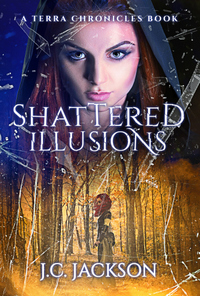 |
Shattered Illusionsby J.C. Jackson Paperback, 252 pg. Read: January 31, 2019 |
Read the Official Synopsis here.
I love this world, this take on fantasy in a modern setting—I think I might keep reading these just to spend time in this world even if Jackson’s stories weren’t that great. Thankfully, I don’t have to make that call, because Jackson can tell a compelling story.
I don’t appreciate the way that many (most?) of the characters treat our protagonist, Katayl. They treat her with the kind of care usually reserved for glass on the verge of shattering, they only tell her as much of the truth as they want—all the while, wanting the benefit of her intelligence, abilities, and magic. It feels condescending and manipulative. And for that to be the way those closest to her to treat her? I can’t stomach it. There’s a decent contingent of characters that do treat her with respect, will tell her as much of the truth about things as they can, and allow her the agency anyone else would enjoy, and I trust those numbers will grow. I’m sure there’s a decent reason the others treat her like an unstable suitcase bomb, but it rankles me to see it.
The blossoming friendship/partnership between Katayl and Silver is great, and I’m really enjoying it. I found this look into her past quite intriguing. And the end of the book? There’s really a lot to unpack there, and I can’t wait to see what the fallout from it all.


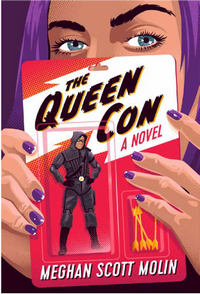 |
The Queen Conby Meghan Scott Molin Kindle Edition, 336 pg. Read: July 11 – 12, 2019 |
Read the Official Synopsis here.
I was really looking forward to this follow-up to The Frame Up, and even listened to the audiobook to prep myself for the release. And while I really liked it, I did think it was a little bit of a let-down. It felt a little rushed, and not fully cooked.
There were some strange continuity problems (wondered about some continuity when listening to The Frame Up, too) that niggled the back of my mind throughout. MG’s narration felt too much like it was trying to rehash the previous book rather than allowing MG to move on a little bit. And Molin seemed to be hinting at one of the reveals of this book so hard that I thought it had to be a red herring, because she seemed more subtle than this.
Nevertheless, these books have so much charm, that I can’t help but smile while reading them. MG is one of my favorite protagonists of the last couple of years. Matteo is a great character, too and I can’t get enough of MG’s friends and/or colleagues (including the new ones). The story itself is a lot of fun, and that covers a multitude of problems.
I do think Volume 3 can—and likely will—win me back, and I did like this one, just not as much as I expected to.


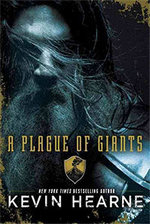 |
A Plague of Giantsby Kevin Hearne Hardcover, 624 pg. Read: October 19 – December 30, 2017 |
Read the Official Synopsis here.
There’s just so much about this book that I loved, and so little that I had issues with, I couldn’t piece together anything coherent. I think the idea of the kennings is brilliant (yes, common to other fantasy series, but Hearne’s approach sells it). Most of the point-of-view characters are so well-drawn and developed that I can’t find fault with any of them.
This has all the strengths of The Iron Druid Chronicles (and maybe a couple of the minor weaknesses), which is enough to get me solidly on board for the series, but there’s more to it than just that.
The best thing, the most inspired idea is the way the bard tells the story, how we get each different POV. It’s a brilliant stroke.
The whole book is great—the magic system, the characters, the stakes, the big mystery about the source of invading giants, and the very human responses to the invasion. A great start to a fantasy trilogy that’s surely going to be one of my favorite trilogies. I just wish I could be a bit more articulate about it.
It does move maddeningly slow. But it has to—you can’t establish this fantastic world at a fast pace. You can’t take the time for all the tiny character moments that are just pure gold if you’re driving towards big action moments. But when the pace does pick up occasionally, you get a hint at how dynamic parts of book 2 and most of book 3 are going to have to be.

![]()


